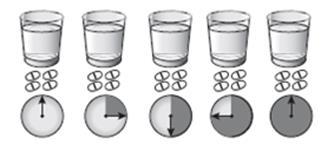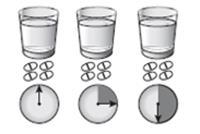

Coloclear

Ask a doctor about a prescription for Coloclear

How to use Coloclear
Leaflet accompanying the packaging: information for the user
Coloclear, 1500 mg, tablets
Sodium dihydrogen phosphate monohydrate + Disodium phosphate anhydrous
Read the leaflet carefully before taking the medicine, as it contains important information for the patient.
- Keep this leaflet, you may need to read it again.
- If you have any further questions, ask your doctor or pharmacist.
- This medicine has been prescribed for you only. Do not pass it on to others. It may harm them, even if their symptoms are the same as yours.
- If you experience any side effects, including any not listed in this leaflet, please tell your doctor or pharmacist. See section 4.
Table of contents of the leaflet
- 1. What is Coloclear and what is it used for
- 2. Important information before taking Coloclear
- 3. How to take Coloclear
- 4. Possible side effects
- 5. How to store Coloclear
- 6. Contents of the pack and other information
1. What is Coloclear and what is it used for
Coloclear contains the active substances: sodium dihydrogen phosphate monohydrate and disodium phosphate anhydrous, belonging to the group of laxatives (very strong laxatives). It is used to cleanse the intestines by retaining a large amount of water in the intestine, resulting in diarrhea. Coloclear tablets are used to cleanse the intestines before certain diagnostic procedures, such as colonoscopy. Coloclear is intended for adults over 18 years of age.
2. Important information before taking Coloclear
When not to take Coloclear:
While taking this medicine, do not take other laxatives, especially those containing sodium phosphate.
Warnings and precautions
Before starting to take Coloclear, discuss it with your doctor or pharmacist.
Before starting to take this medicine, tell your doctor about:
- any heart rhythm disorders, such as irregular heartbeat, cardiomyopathy, recent myocardial infarction, recent heart surgery, such as coronary artery bypass grafting,
- current or past kidney disorders,
- current or past stomach or intestinal disorders,
- current or past problems with electrolyte balance in the blood, such as elevated or decreased sodium or phosphate levels or calcium or potassium levels,
- current or past seizure disorders,
- hypothyroidism,
- low blood pressure,
- advanced age or weakness,
- diabetes,
- hypertension,
- fluid depletion or inability to drink large amounts of fluid,
- syndrome of inappropriate antidiuretic hormone secretion (SIADH),
- stopping alcohol consumption after previous abuse,
- taking benzodiazepines (e.g. valium, drugs used to relieve anxiety),
- taking diuretics (diuretics),
- taking calcium channel blockers or angiotensin-converting enzyme (ACE) inhibitors (drugs used to treat angina, heart disease or hypertension),
- taking angiotensin receptor blockers (such as losartan, used to treat hypertension),
- taking non-steroidal anti-inflammatory drugs (NSAIDs) (drugs used to relieve pain, e.g. ibuprofen),
- taking tricyclic antidepressants (drugs used to treat depression).
Your doctor may order blood tests before and after taking the medicine to check the level of salts (electrolytes) in your body.
Other precautions:
Coloclear may cause excessive fluid loss due to diarrhea. Remember to drink the recommended amount of clear fluids or water to replenish the large amount of fluid lost during bowel movements. However, drinking too much fluid can lead to overhydration (also known as water poisoning - see section 3). If you experience severe or persistent abdominal pain and/or rectal bleeding after taking Coloclear, tell your doctor. Note that taking Coloclear is associated with a rare occurrence of colitis (inflammation of the colon).
Children and adolescents
Do not give Coloclear to children and adolescents under 18 years of age.
REMEMBERto be near a toilet when taking Coloclear, as you should expect frequent, watery stools. The action of the medicine usually occurs 30 minutes to 6 hours after taking the tablets. If bowel movements do not occur after 6 hours, stop taking the medicine and contact your doctor immediately.
Coloclear and other medicines
Tell your doctor or pharmacist about all medicines you are taking now or have taken recently, including those available without a prescription. The use of Coloclear may be allowed, and your doctor will decide on the proper course of action. In particular, tell your doctor about taking the following medicines, as their action may change:
- calcium channel blockers or ACE inhibitors (drugs used to treat angina, heart disease or hypertension),
- diuretics (diuretics),
- lithium-containing medicines (used to treat mental illnesses),
- aluminum, calcium or magnesium salt-containing medicines (may reduce phosphate absorption),
- vitamin D-containing medicines (may increase phosphate absorption),
- medicines such as oral contraceptives, antibiotics, antidiabetic drugs, antiepileptic drugs (their action may be delayed or inhibited),
- NSAIDs (drugs used to relieve pain, e.g. ibuprofen),
- tricyclic antidepressants (drugs used to treat depression),
- benzodiazepines (e.g. valium, drugs used to relieve anxiety),
- parathyroid hormone (used to treat osteoporosis),
- angiotensin receptor blockers (such as losartan, used to treat hypertension),
- medicines that may affect heart rhythm.
While taking Coloclear, DO NOTtake other laxatives, rectal medications or other medicines containing sodium phosphate. Patients should not take this laxative again for at least 7 days. In watery stools, undigested or partially digested Coloclear tablets or undigested tablets of other medicines may be visible.
Coloclear with food and drink
See section 3 of this leaflet.
Pregnancy, breastfeeding and fertility
Before taking any medicine, consult your doctor or pharmacist. Pregnant women, suspected or planned pregnancy may take Coloclear only on the advice of a doctor. Breastfeeding women should not continue breastfeeding during Coloclear treatment or restart it until 24 hours after the last dose.
Driving and using machines
This medicine may cause dizziness. If this happens, do not drive or operate machinery until the feeling passes.
Coloclear contains sodium
This medicine contains 10,016 mg of sodium (main component of table salt/food salt) in the treatment cycle. This is 500% of the recommended maximum daily sodium intake for an adult. The treatment cycle consists of 32 Coloclear tablets. This should be taken into account in patients on a sodium-controlled diet.
3. How to take Coloclear
This medicine should always be taken as directed by your doctor. If you are unsure, consult your doctor or pharmacist. The tablets should be taken orally as follows.
Adults (over 18 years of age):
The recommended dose is 32 tablets. The tablets are usually taken as follows: On the evening before the colonoscopy, take 4 tablets, drinking 250 ml of water (or other clear fluid) every 15 minutes until a total of 20 tablets are taken.

On the day of the colonoscopy (starting 3-5 hours before the procedure), take 4 tablets, drinking at least one glass (250 ml) of water (or other clear fluid) every 15 minutes until a total of 12 tablets are taken.

Coloclear should notbe taken during meals. The day before the colonoscopy, the patient may have a light, low-fiber breakfast (coffee or tea with or without sugar, toast, butter or its equivalent, honey, fruit jam without fruit particles) before 12:00. After 12:00, before taking Coloclear and during its administration, only clear fluids can be consumed, such as water, clear carbonated beverages (with or without carbonation), light soup, diluted fruit juice without pulp, black coffee or weak tea. Coloclear may cause dehydration. It is essential to take the medicine with clear fluid in the amount specified above and drink large amounts of clear fluids to replenish the fluids lost during bowel movements. However, drinking too muchfluid can lead to overhydration (also known as water poisoning - see section 3). Symptoms of water poisoning may include: nausea and vomiting, headaches, blurred vision, seizures, slow breathing, changes in personality and behavior (hallucinations and confusion or disorientation). Untreated overhydration can lead to low sodium levels in the blood (hyponatremia). This can cause more severe symptoms, such as muscle weakness, muscle cramps, seizures, and loss of consciousness. If one or more of these symptoms occur, do not drink more fluids and contact your doctor or pharmacist immediately. Below is a table where you can mark the taken tablets, making it easier to keep track of taking all the tablets at the right time. Write down the start date of treatment and the time of taking each tablet. After swallowing each dose of the medicine, mark the corresponding box. Before starting to take Coloclear, have a clock or watch nearby.
First dosing schedule
Start date
Date Time Dose Mark
Dose 1.
Start time : 4 tablets
Dose 2.
+ 15 minutes : 4 tablets
Dose 3.
+ 30 minutes : 4 tablets
Dose 4.
+ 45 minutes : 4 tablets
Dose 5.
+ 1 hour : 4 tablets
- Total 20 tablets
Second dosing schedule
Start date
Date Time Dose Mark
Dose 1.
Start time : 4 tablets
Dose 2.
+ 15 minutes : 4 tablets
Dose 3.
+ 30 minutes : 4 tablets
- Total 12 tablets
If the examination is to be performed in the early morning hours, you can take
all the tablets in the evening before the procedure.You will need to start taking the tablets at least 4 hours before bedtime. For example, if you plan to go to bed at 11:00 PM, take the first dose of the medicine at 6:30 PM. Then, at 6:30 PM, take 4 tablets, drinking 250 ml of water (or other clear fluid) and repeat every 15 minutes until a total of 20 tablets are taken. After taking the 5th dose, wait 3 hours, then start the second dosing schedule. In this example, take the next 4 tablets at 10:30 PM, drinking 250 ml of water (or other clear fluid) and repeat every 15 minutes until a total of 12 tablets are taken. The last dose will be taken at 11:00 PM. REMEMBERto be near a toilet when taking Coloclear, as you should expect frequent, watery stools. The action of the medicine usually occurs 30 minutes to 6 hours after taking the tablets. If bowel movements do not occur after 6 hours, stop taking the medicine and contact your doctor immediately.
Taking a higher dose of Coloclear than recommended
In case of taking a higher dose of Coloclear than recommended, contact your doctor immediately.
Missing a dose of Coloclear
Do not take a larger dose of Coloclear than usual next time, but take the next dose as soon as you remember, then continue taking the tablets every 15 minutes until the end of the treatment.
Stopping Coloclear treatment
Bowel movements may persist for many hours after taking the last dose of Coloclear. If you have any further questions about the use of this medicine, ask your doctor or pharmacist.
4. Possible side effects
Like all medicines, Coloclear can cause side effects, although not everybody gets them.
Any medicine may cause an allergic reaction, but severe allergic reactions are rare. If you experience any of the following symptoms after taking this medicine, contact your doctor immediately:
- skin rash or itching,
- feeling of pressure or swelling of the throat, lips and face,
- tingling of the lips and tongue,
- seizure or loss of consciousness,
- abnormal heart rhythm, seizures or muscle cramps,
- breathing difficulties,
- chest pain.
Immediately consult a doctor if you experience any of the following conditions:
- kidney failure and/or other kidney disorders (symptoms may include weight gain, swelling around the ankles, hands or feet, presence of blood or protein in the urine, increased need to urinate, weakness, muscle cramps),
- changes in electrolyte levels in the blood (symptoms may include feeling tired, thirst, nausea, tingling, weakness, irregular heartbeat).
Additionally, the following side effects have been reported: Very common:(may affect more than 1 in 10 people)
- bloating, abdominal pain and nausea
- chills, weakness
Common:(may affect up to 1 in 10 people)
- headaches, dizziness, vomiting
- ulceration of the rectum (in the area of the anus). Resolves after treatment ends.
- superficial gastric ulcers causing some pain or discomfort in this area. Resolves after treatment ends.
Uncommon:(may affect up to 1 in 100 people)
- dehydration
Rare:(may affect up to 1 in 1,000 people)
- low magnesium levels in the blood
Very rare:(may affect up to 1 in 10,000 people)
- low blood pressure,
- kidney failure and/or other kidney disorders,
- electrolyte disorders.
Reporting side effects
If you experience any side effects, including any not listed in this leaflet, please tell your doctor or pharmacist. Side effects can be reported directly to: Department of Adverse Reaction Monitoring of Medicinal Products Urząd Rejestracji Produktów Leczniczych, Wyrobów Medycznych i Produktów Biobójczych Al. Jerozolimskie 181C 02-222 Warszawa Tel.: + 48 22 49 21 301 Fax: + 48 22 49 21 309 Website: https://smz.ezdrowie.gov.pl By reporting side effects, you can help provide more information on the safety of this medicine.
5. How to store Coloclear
Keep the medicine out of the sight and reach of children. Do not use this medicine after the expiry date stated on the bottle and packaging after the EXP mark. The expiry date refers to the last day of the month. Store in a tightly closed container to protect from moisture. Medicines should not be disposed of via wastewater or household waste. Ask your pharmacist how to dispose of medicines no longer required. This will help protect the environment.
6. Contents of the pack and other information
What Coloclear contains
The active substances of Coloclear are: 1102 mg of sodium dihydrogen phosphate monohydrate and 398 mg of disodium phosphate anhydrous. The other ingredients are: macrogol 8000 and magnesium stearate.
What Coloclear looks like and contents of the pack
Coloclear is available in the form of round, white or off-white tablets with the inscription "SLX" on the left side and "102" on the right side of the dividing line. The reverse side of the tablet is unmarked. Coloclear is available in bottles containing 32 tablets. The bottle contains all the tablets needed for a full dose. The bottle also contains two desiccants, which should not be swallowed.
Marketing authorisation holder and manufacturer
Laboratoires MAYOLY SPINDLER 6, Avenue de l’Europe – BP 51 78401 CHATOU CEDEX FRANCE
Manufacturer
Laboratoires Galeniques Vernin 20, rue Louis-Charles Vernin 77190 Dammarie-les-Lys, France
This medicinal product is authorised in the Member States of the European Economic Area and in the United Kingdom (Northern Ireland) under the following names:
Date of last revision of the leaflet:
| Belgium | Colowash |
| Ireland | Coloprep |
| Spain | Mayprep |
| Germany, Poland, Portugal, United Kingdom (Northern Ireland) | Coloclear |
- Country of registration
- Active substance
- Prescription requiredYes
- Manufacturer
- ImporterLaboratoires Galeniques Vernin Laboratoires Mayoly Spindler
- This information is for reference only and does not constitute medical advice. Always consult a licensed doctor before taking any medication. Oladoctor is not responsible for medical decisions based on this content.
- Alternatives to ColoclearDosage form: Powder, 13.7 gActive substance: macrogol, combinationsPrescription not requiredDosage form: Powder, -Active substance: macrogol, combinationsManufacturer: Sigma Italia S.p.A.Prescription requiredDosage form: Solution, 667 mg/mlActive substance: lactulosePrescription not required
Alternatives to Coloclear in other countries
The best alternatives with the same active ingredient and therapeutic effect.
Alternative to Coloclear in Украина
Alternative to Coloclear in Испания
Online doctors for Coloclear
Discuss dosage, side effects, interactions, contraindications, and prescription renewal for Coloclear – subject to medical assessment and local rules.














